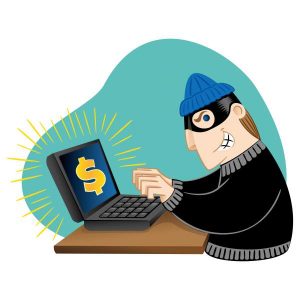Don’t fall victim to Cybersecurity scams. Be on alert from fraudulent email senders.
Earlier this week I received a spoof email (under most circumstances this wouldn't be weird), however I received the email while writing this article about "email spoofing." Talk about coincidence. Email spoofing is a relatively newer form of spam, it’s a term used to describe fraudulent emails in which the sender’s address and other parts of the email header are altered in some way to appear as though the email originated from a different source.
To give you an example, you might receive an email that appears to have been sent from a well-known company (in my recent case, LinkedIn), a social networking website. In reality, it wouldn’t be likely for me to receive unsolicited emails from them. The best way to describe spoofing is a counterfeit email with stolen email addresses used without real address owners knowledge or permission.
Spoofing is a technique commonly used by spammers and scammers using phishing to hide the real origin of an email message. By changing certain properties of the email, such as the "From", "Return-Path" and "Reply-To" fields (which are found in the message header), these criminals can make the email appear to be from someone other than the actual sender. And unfortunately, there is nothing that can be done about it at present, no more than there anything to stop someone from writing a false return address on a postal letter and dropping it in a mailbox.
Typically, scammers are phishing and scamming for one reason, to attain your personal information. This is not something to be taken lightly. Allow me to cut to the chase & offer something of value.
Don’t get SPOOFED - Protect yourself against Cyber FRAUD
- Don’t click on a link that asks for your personal information: Chances are you will be lead to a phony website that looks just like a real website. If you follow instructions and enter your personal information, you could literally be handing over your personal information to thieves.
- If someone contacts you saying you’ve been a victim of fraud: For instance, Saks Fifth Avenue contacts you about fraud, take a name of phone number of the person and tell them you’ve got to call them back in a few minutes. Look up the real phone number for Saks Fifth Avenue accounts services and call to check with their fraud department. This way you will know how to proceed.
- Check online for the recent list of spoofing attacks: You can learn a lot online.
- Find examples of spoofing emails online: Get familiar with how easy it is to be fooled (spoofed).
- Job Seekers beware: Job seekers have become targeted online, fake employers will ask for personal information.
- If someone contacts you unexpectedly asking for personal information: Be suspicious! It is very hard to tell whether something is legitimate but most legitimate companies don’t contact you online asking for personal information especially when they’re posing as protection. If they’re protecting you why are they asking you for MORE personal details online?
- Act immediately if you’ve been hooked by a phisher: If you’ve mistakenly provided account numbers, pin numbers or passwords, contact the companies of whom you have accounts with right away including credit reporting bureaus and any advice for ID theft victims
- Avoid emailing your personal information: before submitting any personal information online look for the lock icon on the browsers status bar
- Review Credit Card and Bank Account Statements: Checking for unauthorized charges each month is something you should become accustomed to doing. Know when to expect statements and make a call if at any time they are late. This could be a warning sign.
- Even if you were hooked, report spoofing: Tell the company or the agency that they phisher was impersonating. Send the actual spam to: Spam@uce.gov.
How to Report Fraud: The information you provide helps to stop identity theft.
You can also report the problem to law enforcement agencies through the National Fraud Information Center/Internet Fraud Watch, www.fraud.org or 800-876-7060
